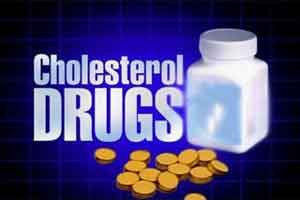- Home
- Editorial
- News
- Practice Guidelines
- Anesthesiology Guidelines
- Cancer Guidelines
- Cardiac Sciences Guidelines
- Critical Care Guidelines
- Dentistry Guidelines
- Dermatology Guidelines
- Diabetes and Endo Guidelines
- Diagnostics Guidelines
- ENT Guidelines
- Featured Practice Guidelines
- Gastroenterology Guidelines
- Geriatrics Guidelines
- Medicine Guidelines
- Nephrology Guidelines
- Neurosciences Guidelines
- Obs and Gynae Guidelines
- Ophthalmology Guidelines
- Orthopaedics Guidelines
- Paediatrics Guidelines
- Psychiatry Guidelines
- Pulmonology Guidelines
- Radiology Guidelines
- Surgery Guidelines
- Urology Guidelines
New gene silencer cholesterol drug can switch off heart disease

Washington: A breakthrough 'gene silencer' drug has the power to 'switch off' heart disease by reducing cholesterol by over 50 percent.
The findings come from the largest trial yet to test the safety and effectiveness of this kind of therapy. The technique, known as RNA interference (RNAi) therapy, essentially 'switches off' one of the genes responsible for elevated cholesterol.
Researchers from Imperial College London and their colleagues, who conducted the trial, say the twice-a-year treatment could be safely given with or without statins, depending on individual patient needs. Eventually, inclisiran could help to reduce the risk of heart attacks and stroke related to high cholesterol.
"These initial results are hugely exciting for patients and clinicians," said lead author Kausik Ray, adding "We appear to have found a versatile, easy-to-take, safe, treatment that provides sustained lowering of cholesterol levels and is therefore likely to reduce the risk of cardiovascular disease, heart attacks, and stroke. These reductions are over and above what can be already be achieved with statins alone or statins plus ezetemibe, another class of cholesterol-lowering drug."
Elevated levels of low-density lipoprotein (LDL) cholesterol can lead to cardiovascular disease and blood vessel blockage, leading to an increased risk heart attacks and stroke in patients.
Statins are currently the standard treatment for high cholesterol, combined with exercise and healthy diet, as they reduce levels in the blood and therefore help to prevent heart attacks and stroke.
However, many patients are unable to tolerate the highest doses and they need to be taken consistently. Forgetting to take them or taking them infrequently reduces the expected benefit from these treatments. Also, in some patients cholesterol levels can remain high despite being given the maximum doses of statins.
Now, this new phase 2 clinical trial has confirmed the effectiveness of injecting inclisiran for reducing cholesterol that can be taken alone or potentially combined with statins for maximum effect.
In the study, researchers gave 497 patients with high cholesterol and at high risk of cardiovascular disease either inclisiran at varying doses, or placebo. Seventy-three per cent of these patients were already taking statins, and 31 per cent were taking ezetimibe. Participants, who were recruited from Canada, USA, Germany, Netherlands, and the UK, were excluded if they were taking monoclonal antibodies for cholesterol lowering.
Patients were given different doses of inclisiran or placebo via subcutaneous injection, either via a single dose, or via a dose on day one and another at three months. They were followed up regularly for a subsequent eight months and tested for blood cholesterol and side effects.
The researchers found that just one month after receiving a single treatment of inclisiran, participants' LDL cholesterol levels had reduced by up to 51 per cent.
The study will now follow up patients for a further four months (one year total follow up).
The results from this trial, known as ORION-1, are published in the New England Journal of Medicine.

Disclaimer: This site is primarily intended for healthcare professionals. Any content/information on this website does not replace the advice of medical and/or health professionals and should not be construed as medical/diagnostic advice/endorsement or prescription. Use of this site is subject to our terms of use, privacy policy, advertisement policy. © 2020 Minerva Medical Treatment Pvt Ltd